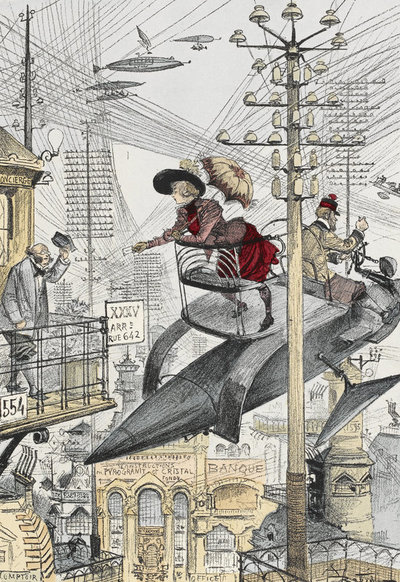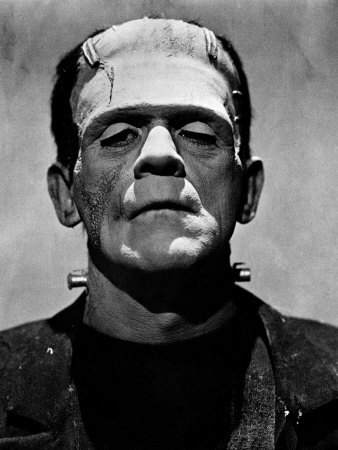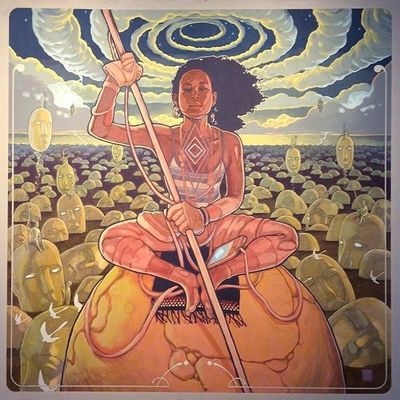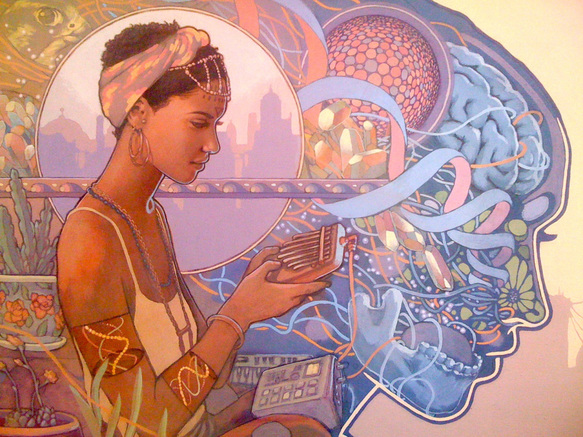|
Art by Joshua Mays. "Science-fiction is a white "menochrome": it's a genre written by white men for white men and in which characters are white men." Erm... No, really, no. So here are ten novels, chosen subjectively and by chronological order, that will get you on your way to discover that there are much more than just these ten novels and that scifi and fantasy is a genre as diverse as our planet's population... 1. Samuel Delany, Nova, 1968. Science-fiction, Space Opera, Stand Alone Novel, Own Voices. Nova is a classic space opera novel and is considered a precursor to the cyberpunk genre. It also includes strong folklore and mythological themes, tarot among them. The story is basically a traditional quest in space, led by Lorq Von Ray, the heir of a wealthy mixed race family. 2. Octavia Butler, Parable of the Sower, 1993. Science-fiction, Own Voices. In the future, society has become violent and anarchistic. Lauren lives in a gated community in California and she develops an hyper empathy. Forced to flee, she travels north and her ability to feel everything leads her to founding a new religion. Parable of the Sower is Octavia Butler's other masterpiece, after Kindred. 3. Derrick Bell, "The space traders", 1995. Science-fiction, Short Stories, Own Voices. What if aliens offered the US government an infinity of riches in exchange for their black population? That's the heart of this striking short story written by the first Afro-American teacher at Harvard. 4. Juliet McKenna, The Aldabreshin Compass, 2003-2006. Fantasy, Epic & Heroic Fantasy. I'm a fan of McKenna's four series (you can find my review for her first series here). The Aldabreshin Compass takes place on the same world as the other three, but in a region of tropical islands with a fascinating culture. The series follows Daish Kheda in his quest to save the archipelago from dragons. (1) 5. Aliette de Bodard, Servant of the Underworld, 2010. Fantasy, SFF Noir & Crime. Servant of the underworld is the first volume in a trilogy that takes place during the Aztec empire. It's a surprising and often gripping mix between a historical novel, a mystery novel and fantasy. 6. Ben Aaronovitch, Rivers of London, 2011. Fantasy, Urban Fantasy. Peter Grant has just passed the London Met police exam and is now a PC. He's assigned to a secret unit in charge of dealing with the supernatural population of Britain. Funny and well written, Rivers of London is the first volume of a series that embraces multicultural Britain but which, sadly, loses a bit its way in the latest novels. 7. Karen Lord, Redemption in Indigo, 2012. Fantasy, Stand Alone Novel, Own Voices. Inspired by the myths and cultures from the Caribbean and Senegal, Redemption in Indigo is a unique tale, full of humour, amazing food and extraordinary characters. It won the 2011 Mythopoeic Award. 8. G. Willow Wilson, Alif the Unseen, 2012. Fantasy, Epic & Heroic Fantasy, Stand Alone Novel. G. Willow Wilson is mostly known for her comics, particularly for her series Ms Marvel. Alif the Unseen is her only novel so far. Sometimes a bit awkward but full of energy, it tries the surprising mix between the Arab Springs, technology and islamic myths. Alif the Unseen won the World Fantasy Award in 2013. 9. Saladin Ahmed, Throne of the Crescent Moon, 2012. Fantasy, Epic & Heroic Fantasy, Own Voices. Saladin Ahmed's novel also plunges the reader in a universe inspired by the islamic myths and legends. This traditional heroic fantasy story benefits from an interesting main character and also tackles the question of the legitimacy of authority. Throne of the Crescent Moon won the Locus Award for best novel in 2013. 10. Zen Cho, Sorcerer to the crown, 2015. Fantasy. Zacharias Whyte is the first royal sorcerer of African descent. Obviously, it raises a few eyebrows in Regency Britain. Sorcerer to the Crown will remind you at times of Jonathan Strange and Mr Norrell but with a more light hearted story which can be a bit predictable at times but very enjoyable nonetheless. Bonus Among my previous posts, I also warmly recommend The Book of Phoenix by Nnedi Okorafor (science-fiction), The Fifth Season by N.K. Jemisin (fantasy) and The Three body problem by Cixin Liu (science-fiction). (1) For more stories set on tropical archipelagoes and of Polynesian inspiration, you can also read the Earthsea saga by Ursula K. Le Guin (you can read here how she feels about the mini series whitewashing), and the outrageously underrated Nation by Sir Terry Pratchett.
0 Comments
Your comment will be posted after it is approved.
Leave a Reply. |
All reviews are spoiler free unless explicitly stated otherwise.
I only review stories I have liked even if my opinion may be nuanced. It doesn't apply for the "Novels published before 1978" series of blog posts. Comments are closed, having neither time nor the inclination to moderate them. |
WHAT IS THE MIDDLE SHELF?
The middle shelf is a science-fiction and fantasy books reviewS blog, bringing you diverse and great stories .
PLEASE SUPPORT AUTHORS.
IF YOU LIKE IT, BUY IT. |
ON THE MIDDLE SHELF
|
KEEP IN TOUCH WITH THE MIDDLE SHELF
|




 RSS Feed
RSS Feed
